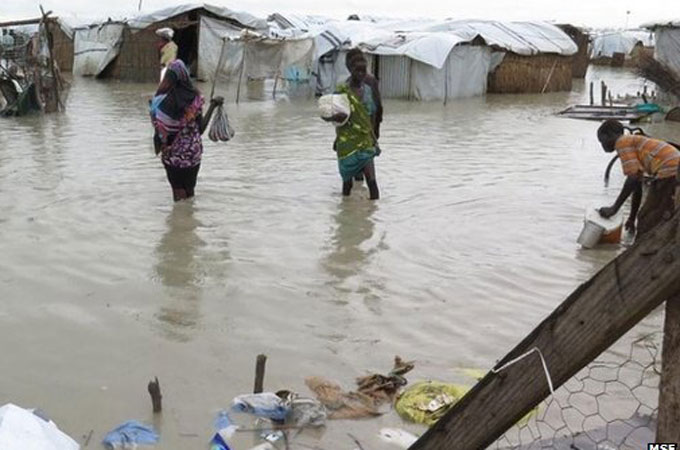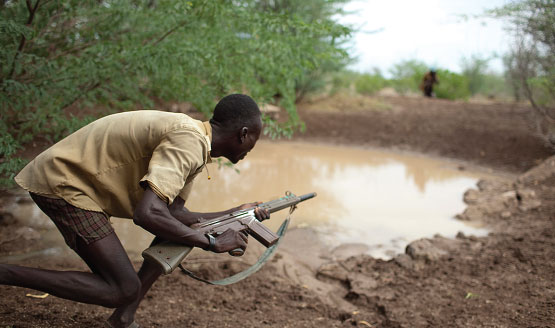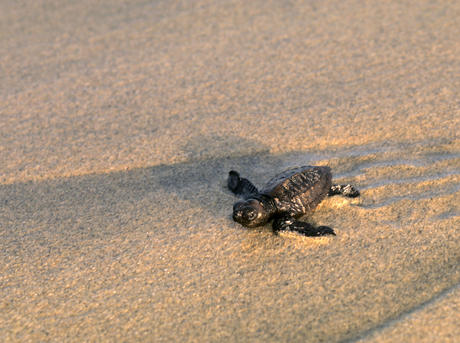East Africa is facing the worst food crisis in the 21st century. According to Oxfam, 12 million people in Ethiopia, Kenya and Somalia are in dire need of food. Rainfall has beedn below average with 2010/2011 being the driest year since 1950/1951, a serious problem for a continent almost entirely dependent on rain for its agriculture.

Image © wphna.org
4. Impacts on Human Health
Climate-sensitive diseases and health impacts can be high in poor countries that have minimal resources to treat and prevent illness. Examples of climate related health impacts include:
- Frequent and severe heat stress linked to sustained increases in temperature
- The reduction in air quality that often accompanies a heat wave can lead to breathing problems and worsen respiratory diseases.
- Impacts of climate change on agriculture and other food systems increases rates of malnutrition and contributes to poverty — “With one in four people still undernourished in sub-Saharan Africa, climate change impacts make it even more difficult for governments across the region to improve food security and help reduce tensions.”
- The spread of Malaria may increase in areas projected to receive more precipitation and flooding. Increases in rainfall and temperature can cause spreading of dengue fever
5. Impacts on Shelter
Severe flooding and intense droughts has led to the destruction of many homes, shelters and villages across Africa. Conflicts over resources also exacerbate these impacts and, in turn, contribute to the ongoing migration within and between countries in Africa.
Extreme events displace large amounts of people, especially those who are unable to respond and rebuild after disasters, due to lack of resources.
“South Sudan refugees residing in a UN camp are living in knee-deep, sewage-contaminated floodwater, forcing some families to sleep standing up so they can hold their children out of the water.”

Image © AlJazeera
6. Impacts on Vulnerable Population
Women, children and the elderly are more vulnerable to climate change impacts across Africa. Women labourers often experience additional duties as caregivers and as well as from societal responses to climate change after extreme weather events (eg, male migration).
The water scarcity places an additional burden on African women, who walk hours and sometimes even days, to fetch it. (IPCC, 2014)
Children and the elderly face graver risks due to susceptibility to infectious diseases, such as Malaria, limited mobility and reduced intake of food. The elderly face physical danger and even death due to droughts, heat stress and wildfires. Children often die from starvation, malnutrition, diarrheal diseases and flooding. (IPCC, 2014)
7. Impacts on National Security
Climate change impacts have the potential to exacerbate national security issues and increase the number of international conflicts. Conflicts often occur over the use of already limited natural resources, fertile ground and water. Access to consistent and dependable sources of water is greatly valued in many African regions. However, changes in the timing and intensity of rainfall have threatened water availability and are causing conflicts over this limited resource (IPCC, 2014).
“A United Nations report predicts that access to water may be the single biggest cause of conflict and war in Africa in the next 25 years. Such wars are most likely to be in countries where rivers or lakes are shared by more than one country.”

A young man from the Nyangatom tribe patrols a water access point on the border between Ethiopia and Kenya. The site is one of ongoing conflict between the Nyangatom, the Kenyan border police, and the Turkana tribe. (Image © vassar.edu)
The changes in precipitation and temperature are already affecting crop yields in Sub-Saharan Africa. This has resulted in food shortages, that have triggered cross border migration and intraregional conflicts, which has sparked political instability in Nigeria for example.
8. Impacts on ecosystems

Image © WWF-US
Climate change has already led to changes in freshwater and marine ecosystems in eastern and southern Africa, and terrestrial ecosystems in southern and western Africa. The extreme weather events have demonstrated the vulnerability of some of South Africa’s ecosystems. The migration patterns, geographic range and seasonal activity of many terrestrial and marine species have shifted in response to climate change. The abundance and interaction among species has also changed (IPCC, 2014).
Despite the fact that the African continent has contributed the least to anthropogenic factors causing climate change, Africa is the worst hit.
Credit: www.350africa.org

